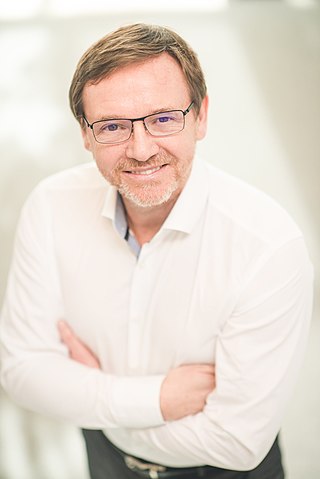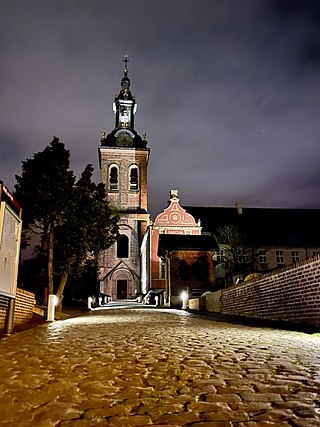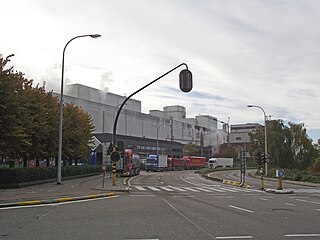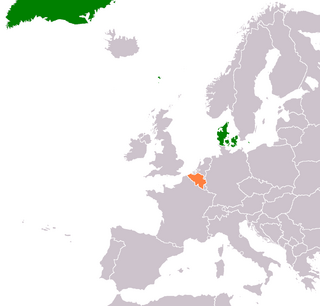Related Research Articles

Baudouin was King of the Belgians from 17 July 1951 until his death in 1993. He was the last Belgian king to be sovereign of the Congo, before it became independent in 1960 and became the Democratic Republic of the Congo.

The Catholic University of Leuven or Louvain was founded in 1834 in Mechelen as the Catholic University of Belgium, and moved its seat to the town of Leuven in 1835, changing its name to Catholic University of Leuven. In 1968, it was split into two universities, the Katholieke Universiteit Leuven and the Université catholique de Louvain, following tensions between the Dutch and French-speaking student bodies.

Matthias Vanden Gheyn was a Flemish musician from the Baroque/Classical transition period. He is a descendant of the famous bell founding family of the same name. During his life, Vanden Gheyn was considered an outstanding virtuoso of the carillon and organ. He is most famous for composing eleven preludes for carillon, which have become standard repertoire among carillonneurs worldwide since the early 1900s. His spot in history was earned in large part due to the tireless research of his biographer Xavier-Victor-Fidèle van Elewyck, a law and music scholar who considered Vanden Gheyn to be the greatest musician of the Southern Netherlands in the 18th century.
Pierre L. van den Berghe was a Congolese-born American professor emeritus of sociology and anthropology at the University of Washington, where he had worked since 1965. Born in the Belgian Congo to Belgian parents, and spending World War II in occupied Belgium, he was an early witness to ethnic conflict and racism, which eventually led him to become a leading authority on ethnic relations. He conducted field work in South Africa, Mexico, Guatemala, Iran, Lebanon, Nigeria, Peru, and Israel. Early in his career, he lectured at the University of Natal alongside Leo Kuper and Fatima Meer. A student of Talcott Parsons at Harvard, he nevertheless had little interest in structural functionalism and was one of the first proponents of sociobiological approaches to social phenomena. Van den Berghe died on 6 February 2019.

Herman Achille, Count Van Rompuy is a Belgian politician who served as prime minister of Belgium from 2008 to 2009, and then as the first permanent president of the European Council from 2009 to 2014.

VIB is a research institute located in Flanders, Belgium. It was founded by the Flemish government in 1995, and became a full-fledged institute on 1 January 1996. The main objective of VIB is to strengthen the excellence of Flemish life sciences research and to turn the results into new economic growth. VIB spends almost 80% of its budget on research activities, while almost 12% is spent on technology transfer activities and stimulating the creation of new businesses, in addition VIB spends approximately 2% on socio-economic activities. VIB is member of EU-LIFE, an alliance of leading life sciences research centres in Europe.

Désiré, Baron Collen is a Belgian physician, chemist, biotechnology entrepreneur and life science investor. He made several discoveries in thrombosis, haemostasis and vascular biology in many of which serendipity played a significant role. His main achievement has been his role in the development of tissue-type plasminogen activator (t-PA) from a laboratory concept to a life-saving drug for dissolving blood clots causing acute myocardial infarction or acute ischemic stroke. Recombinant t-PA was produced and marketed by Genentech Inc as Activase and by Boehringer Ingelheim GmbH as Actilyse, and is considered biotechnology's first life saving drug.

Rudi Pauwels is a Belgian pharmacologist and biotech entrepreneur.

Jacques Marie Joseph Hubert Ghislain van Ypersele de Strihou, was the Principal Private Secretary to the King of the Belgians (1983–2013). When Albert II of Belgium succeeded his brother Baudouin I of Belgium, he kept his private secretary, so Jacques van Ypersele de Strihou has served two kings. Together with Jan Willems, Marshal of the Royal Household, he represents the King at the board of the King Baudouin Foundation.

Park Abbey is a Premonstratensian abbey in Belgium, at Heverlee just south of Leuven, in Flemish Brabant.
Vanden Gheyn, Van den Gheyn or Van den Ghein was a family of bellfounders and carillon makers. The bell foundry was established in 1506 in Mechelen and active until the 20th century. They have been called "the most famous family of bellfounders [Belgium] has had".

Raffinerie Tirlemontoise, a subsidiary of Raffinerie Tirlemontoise Group, is a Belgian sugar producing company. The company whose headquarters is located in Tienen (Belgium) has four business units: sugar activities, Orafti, Surafti and PPE, which together employ more than 1,800 people.

Jean-Jacques Cassiman was a Belgian geneticist and professor of human genetics.

KU Leuven is a Catholic research university in the city of Leuven, Belgium.

Belgium–Denmark relations refers to the current and historical relations between Belgium and Denmark. Belgium has an embassy in Copenhagen, while Denmark has an embassy in Brussels. Both countries are furthermore members of the European Union and NATO.
Michel Ostyn was a Belgian physiologist, sports physician and sports medicine pioneer.
Herman Frans Anna baron Van der Wee is a Belgian economic historian. He was a full professor of social and economic history at the KU Leuven from 1969 to 1993. The academic output of Van der Wee spans economic history, the history of banking, financial history. He has performed research on the period from the Middle Ages to the present time. Geographically he has performed broad research as well, looking into Antwerp, Belgium, the Low Countries, Europe and the world.
Events in the year 1968 in Belgium.

Van Den Berghe Dequeker syndrome, also known as ulnar hypoplasia-split foot syndrome is a very rare congenital limb malformation syndrome which is characterized by severe ulnar hypoplasia, absence of the index to pinky finger in both hands, and split-foot.
References
- Janssen J et al., Clonal analysis of myelodysplastics syndromes – evidence of multipotent stem-cell origin, Blood, 73, 248–254, 1989.
- Arthur DC et al., The clinical-significance of karyotype in acute myelogenous leukemia, Cancer Genet Cytogen, 40, 203–216, 1989.
- Herman Van Den Berghe leaving Leuven University as an emeritus (in Dutch)
- Herman Van den Berghe, entry in Who Named It